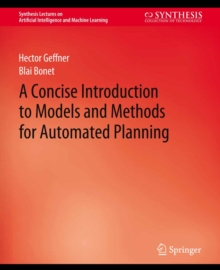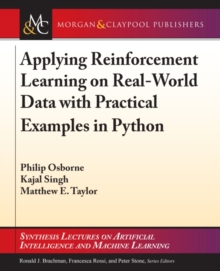
Game Theory for Data Science : Eliciting Truthful Information Paperback / softback
by Boi Faltings, Goran Radanovic
Part of the Synthesis Lectures on Artificial Intelligence and Machine Learning series
Paperback / softback
Description
Intelligent systems often depend on data provided by information agents, for example, sensor data or crowdsourced human computation.
Providing accurate and relevant data requires costly effort that agents may not always be willing to provide.
Thus, it becomes important not only to verify the correctness of data, but also to provide incentives so that agents that provide high-quality data are rewarded while those that do not are discouraged by low rewards. We cover different settings and the assumptions they admit, including sensing, human computation, peer grading, reviews, and predictions.
We survey different incentive mechanisms, including proper scoring rules, prediction markets and peer prediction, Bayesian Truth Serum, Peer Truth Serum, Correlated Agreement, and the settings where each of them would be suitable.
As an alternative, we also consider reputation mechanisms.
We complement the game-theoretic analysis with practical examples of applications in prediction platforms, community sensing, and peer grading.
Information
-
Item not Available
- Format:Paperback / softback
- Pages:151 pages
- Publisher:Morgan & Claypool Publishers
- Publication Date:19/09/2017
- Category:
- ISBN:9781627057295
Other Formats
- Paperback / softback from £44.99
- PDF from £38.24
Information
-
Item not Available
- Format:Paperback / softback
- Pages:151 pages
- Publisher:Morgan & Claypool Publishers
- Publication Date:19/09/2017
- Category:
- ISBN:9781627057295








